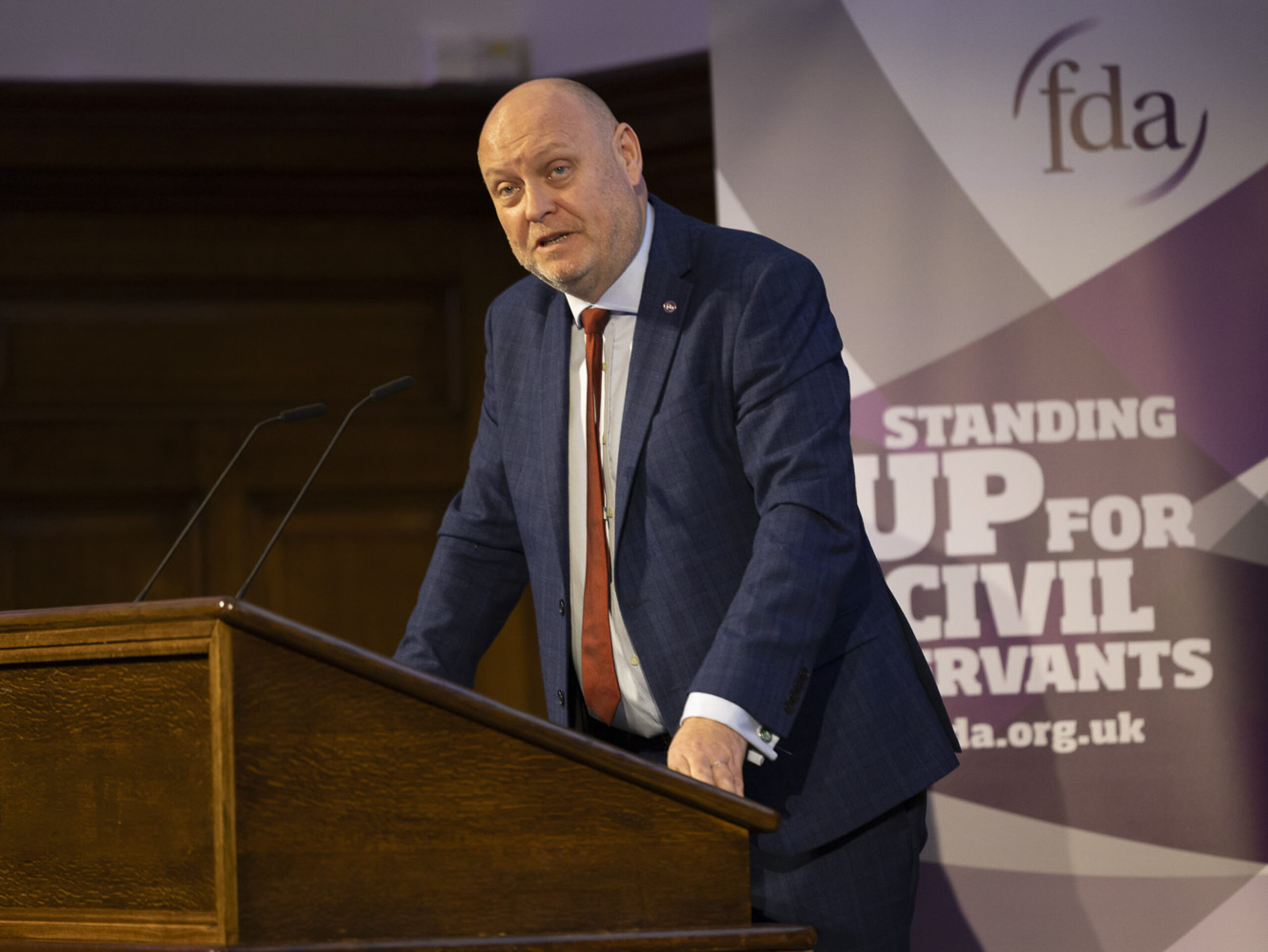Why unions need to lead the way on equal pay

The past 12 months has been an exciting time for the FDA, with 2019 marking our centenary year. A hundred years standing up for civil servants is quite something. Aside from marking our centenary by moving in to a new building and setting out our direction for the future, we also spent some time digging around into our history to find the stories about the achievements of a union that has championed the civil service for 100 years.
In the equality space, we have achieved a lot. We elected our first woman president, who fought against the civil service marriage bar, in 1944. We started campaigning for equal pay rates for men and women back in 1935 and we “officially” achieved this 20 years later. Yet in reality, we’re still waiting for fair pay for our members working across government. Indeed, the latest figures show that, in 2019, there was still an 11.1% Gender Pay Gap across the civil service. What’s worse, some departments appear to be going backwards, with the Department for International Trade recording a 3.5% increase in their median Gender Pay Gap over the last year.
For the FDA, there are three key things that underpin our approach to equal pay today. Firstly, we work to raise the profile of the issue. In my experience, understanding of the issues around equal pay are really limited amongst our members. There’s still a lack of understanding about the difference between the gender pay gap and equal pay, and I regularly see members approaching retirement come to me, who have potentially experienced pay discrimination at times earlier in their career but are now lacking the evidence for us to challenge this effectively.
Often the first an individual knows about an equal pay issue is after someone ‘let’s slip’ what they’re earning, often either in hushed tones and with a hint of embarrassment, or in the pub. There’s nothing quite like the burning anger that rises in your stomach when you fear you might be being undervalued for the work you do, particularly when compared to a male counterpart. There’s something so unjust about it, it really does smart. And yet, still, we wait for that slip up in conversation, that insight in to a pay packet that may never come.
When I spoke at an event hosted by the Cross Government Women’s Network to celebrate a centenary of women’s suffrage, my top tip for challenging equal pay – other than to join a union – was to talk about pay with their colleagues. Because without that knowledge you really don’t have the information to make your case.
The FDA is proudly affiliated to the Fawcett Society, something I’d really encourage other unions to consider. On the last Equal Pay Day, the Society launched their #RightToKnow campaign asking for women to have access to information on what their male colleagues are earning if they think that they might be being discriminated against.
Our support of that campaign and the Fawcett Society more broadly, as well as our work with staff networks, are two ways we raise the profile of the issues around equal pay, but a lot of the work that goes on takes place in local branches and workplaces. Unfortunately, given the civil service pay structures, there’s a limit to the impact we can have locally.
This brings me on to my second point: we lobby for structural change. The civil service can be a really good employer, but we think it falls short when it comes to taking equal pay seriously, and that’s based on the experience of our women members, particularly those working in the senior civil service.
The pay structures within the civil service, combined with a lack of sufficient government funding, both prevent employers being able to retain their staff and leave them really vulnerable to claims of discrimination from some of their most senior women. Often we’re approached by women who have developed their career within the civil service over years, perhaps even decades, but feel they have no option but to leave for a better paying job in the private sector, before returning with the ability to negotiate their pay as someone coming in on market rates. This is an all too common issue for women who are facing potential pay discrimination.
In 2018 we challenged government decision-making in relation to civil service pay by raising a judicial review over flaws in the process. We’re prepared to challenge such decisions at the highest level, and will prioritise working with ministers to ensure that the inequality that currently exists within the civil service pay structures is addressed – something that requires significant investment.
And finally, the FDA is prepared to make the case for our members, either individually or collectively. Since 2014, we have been arguing that the pay system currently in place in HMRC indirectly discriminates against women, owing to the fact that length of service is used as a determinant of basic pay. Men employed by HMRC typically have longer service than women and are clustered disproportionately at or near the top of the pay ranges for the relevant grades.
The legal challenge has been based around considering what is the correct mechanism to test whether women are put at a ‘particular disadvantage’ for the purposes of Equality Act, where the pay differences complained of fall across a range, rather than between binary ‘advantaged’ and ‘disadvantaged’ groups.
Equal pay is something that affects our members working across government departments. At a time when the civil service really is facing unprecedented challenges, it seems only fair that women aren’t shouldering pay discrimination as something that just comes with the job. We will continue our work to raise the profile of the facts around equal pay, challenge the structural issues that entrench these problems, and bring cases to court in order to pursue justice.
This piece was based on a speech Jones delivered at the Equality Trust’s ‘Equal Pay @50’ event, which marked the 50th anniversary of the UK’s Equal Pay Act.
If you would be interested in getting involved in our equality work, email equalitymatters@fda.org.uk.
Related News
-

FDA secures 6.41% pay increase for Fast Streamers
The FDA’s Fast Stream members have voted to accept a pay award for 2025-26 with a 6.41% increase for second year salaries. The deal has been agreed under the Cabinet Office’s annual pay remit guidance process for the first time.
-

Civil service pay award demonstrates government has “failed to grasp the nettle of fundamental reform”
The government has published its Civil Service Pay Remit Guidance alongside a Written Ministerial Statement confirming the government’s decision to accept the recommendations of the SSRB.
-

ADC 2025: Penman says civil servants are “hungry for reform”
At the union’s Annual Delegate Conference delegates heard from guest speakers FDA General Secretary Dave Penman, journalist Lewis Goodall, and Cabinet Office minister Georgia Gould.